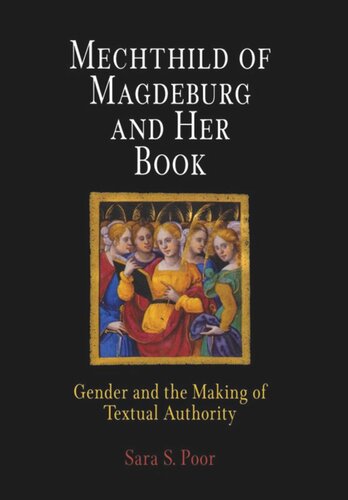

Most ebook files are in PDF format, so you can easily read them using various software such as Foxit Reader or directly on the Google Chrome browser.
Some ebook files are released by publishers in other formats such as .awz, .mobi, .epub, .fb2, etc. You may need to install specific software to read these formats on mobile/PC, such as Calibre.
Please read the tutorial at this link: https://ebookbell.com/faq
We offer FREE conversion to the popular formats you request; however, this may take some time. Therefore, right after payment, please email us, and we will try to provide the service as quickly as possible.
For some exceptional file formats or broken links (if any), please refrain from opening any disputes. Instead, email us first, and we will try to assist within a maximum of 6 hours.
EbookBell Team

4.4
62 reviewsSometime around 1230, a young woman left her family and traveled to the German city of Magdeburg to devote herself to worship and religious contemplation. Rather than living in a community of holy women, she chose isolation, claiming that this life would bring her closer to God. Even in her lifetime, Mechthild of Magdeburg gained some renown for her extraordinary book of mystical revelations, The Flowing Light of the Godhead, the first such work in the German vernacular. Yet her writings dropped into obscurity after her death, many assume because of her gender.
In Mechthild of Magdeburg and Her Book, Sara S. Poor seeks to explain this fate by considering Mechthild's own view of female authorship, the significance of her choice to write in the vernacular, and the continued, if submerged, presence of her writings in a variety of contexts from the thirteenth through the nineteenth century. Rather than explaining Mechthild's absence from literary canons, Poor's close examination of medieval and early modern religious literature and of contemporary scholarly writing reveals her subject's shifting importance in a number of differently defined traditions, high and low, Latin and vernacular, male- and female-centered.
While gender is often a significant factor in this history, Poor demonstrates that it is rarely the only one. Her book thus corrects late twentieth-century arguments about women writers and canon reform that often rest on inadequate notions of exclusion. Mechthild of Magdeburg and Her Book offers new insights into medieval vernacular mysticism, late medieval women's roles in the production of culture, and the construction of modern literary traditions.